“Programmer - Analytical Thinking = 1C Programmer” and other GoToHack results
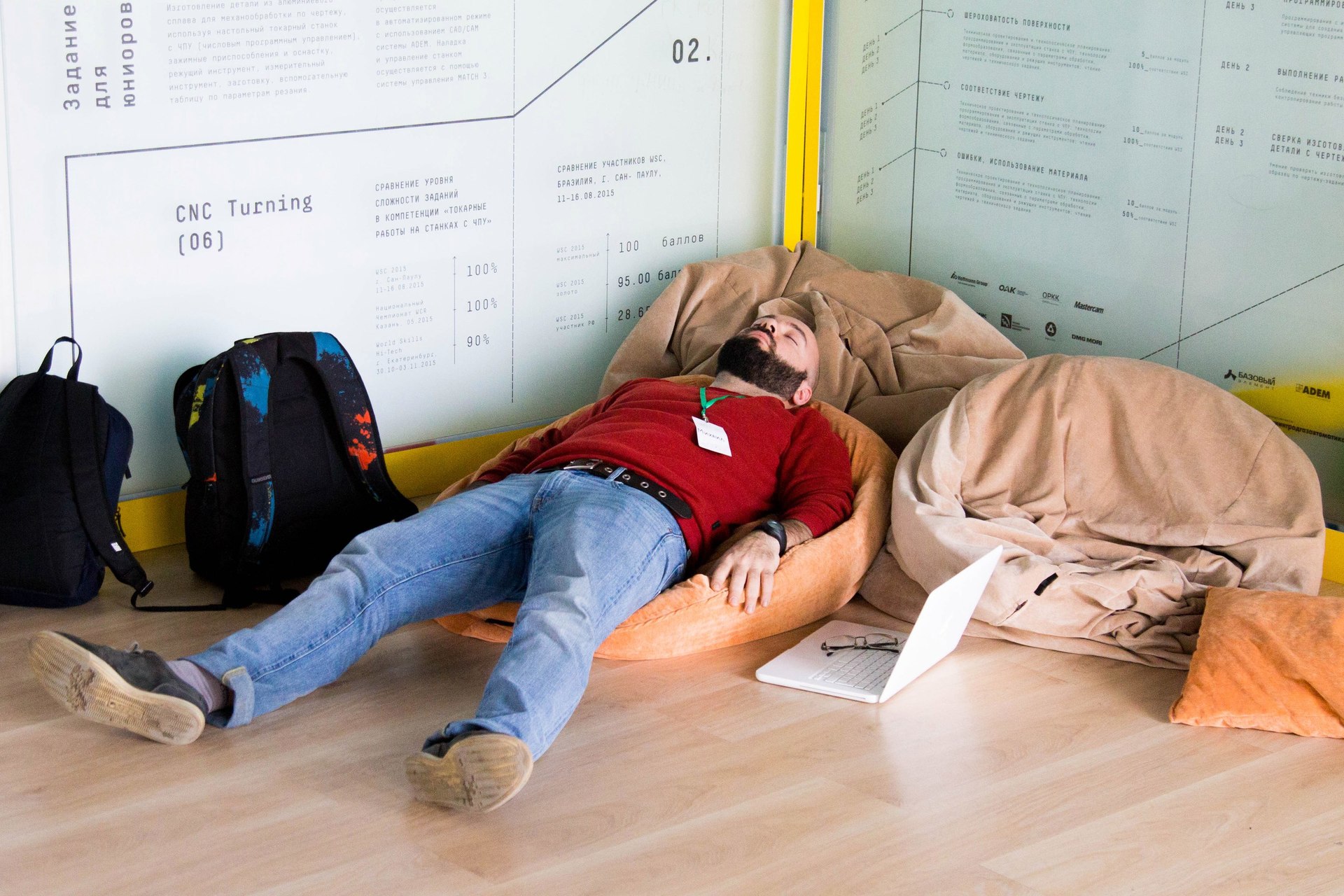
From December 9 to 11, our second GoToHack hackathon for children under 20 years old was held, dedicated to the use of machine learning technologies in the field of education and HR.
As a result, each team presented the results to experts, the best were awarded various prizes: from university admission to a grant of 100,000 rubles for a trip to an international conference.
About projects and fun moments can be read under the cut.
To participate, we invited 90 desperately hungry “typewriter” schoolchildren and students who were able to pass the online qualifying stage of the hackathon as a task on Kaggle to predict the outcome of an online course based on real partner data - the Stepik.org platform. We wrote about this in detail here .
As for the first time, the hackathon began with a training intensive and master classes:
- Alexander Panin from Yandex held a series of introductory master classes for beginners,
- Kamil Salakhiev from Innopolis University held a master class on MapReduce,
- Muammar Il-Shedivat from Yandex told the guys about working with speech.
Then the presentation of cases from the guests of the hackathon began: Alexander Kukushkin talked about a study of Moscow schools, Alexander Petrov from E-Contenta and Alexander Semenov from MTS told about research on these social networks.
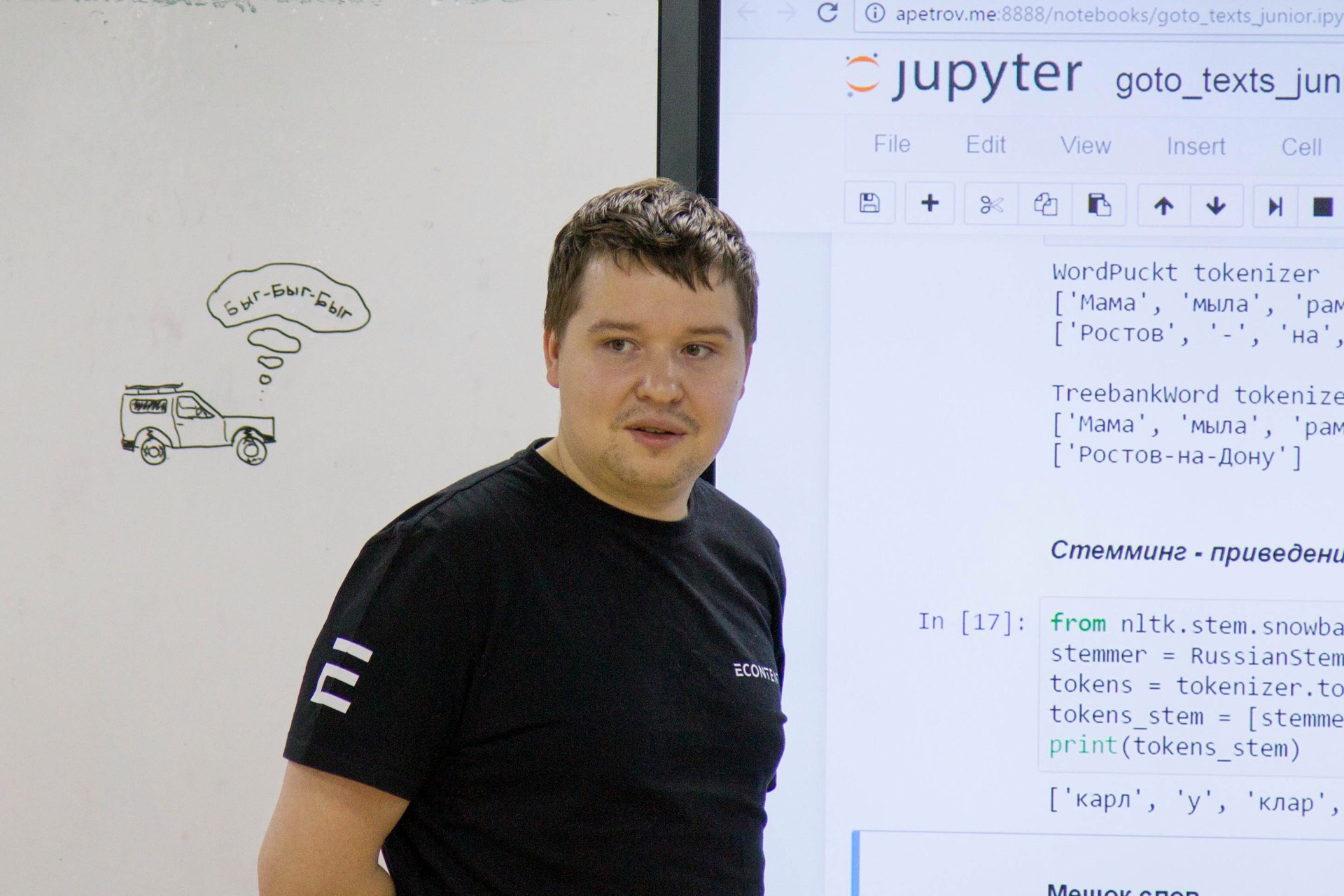
After the guys joined in teams and met with the curators, who became young developers and graduates of Yandex Yandex ShAD. Teams could use any open data to implement their ideas, but the organizers provided datasets from Stepik, QIWI, HH, VK, Skyeng, MTS and GitHub.
Thanks to the generous partner of Servers.ru, each team had the opportunity to grab a GPU and enjoy life.
The second day began with master classes in Deep Learning by Alexander Panin, working with texts from Alexander Petrov and dirty data from Kirill Lunev from Yandex. There was also a presentation of the project on monitoring the audience’s attention by video from students of the HSE FCN under the direction of YDF.
Presentations of part of the lectures are possible here , workshops are here .
Then all the participants plunged into continuous cramps of the birth of projects, periodically suffering from the absence of a specific task and leaderboard, as well as enjoying the amusing features of the site and the environment.
A little bit about the process
The hackathon was held within the walls of the ASI boiling point, and all 3 days we were delighted with amusing foresight schemes and stands that motivated the guys quite strongly.
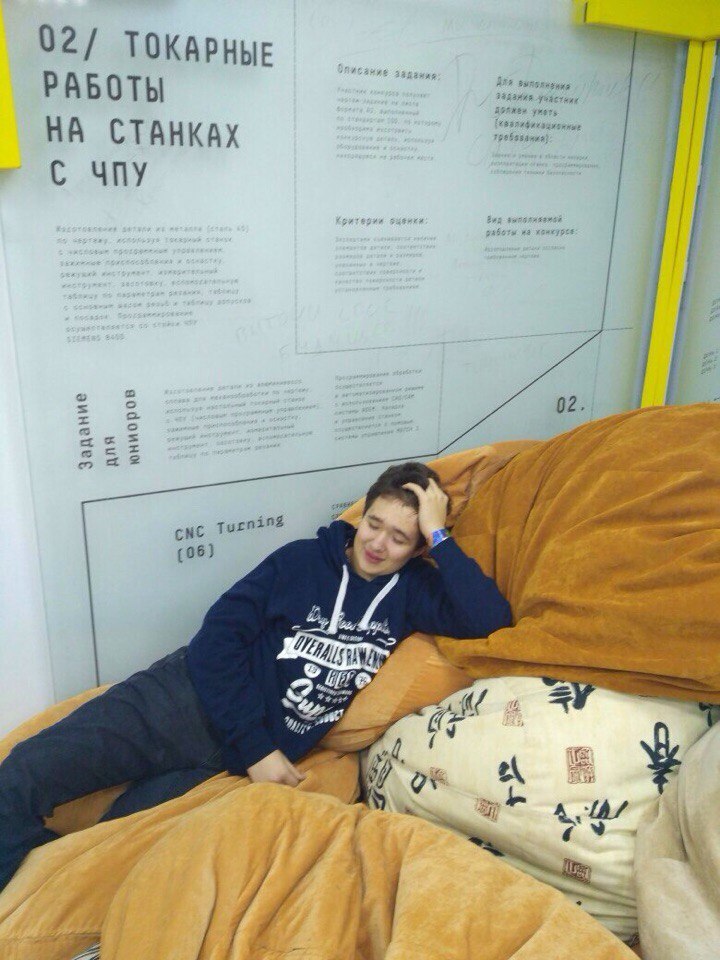
Deliveries of glucose to young datasainists occurred around the clock.
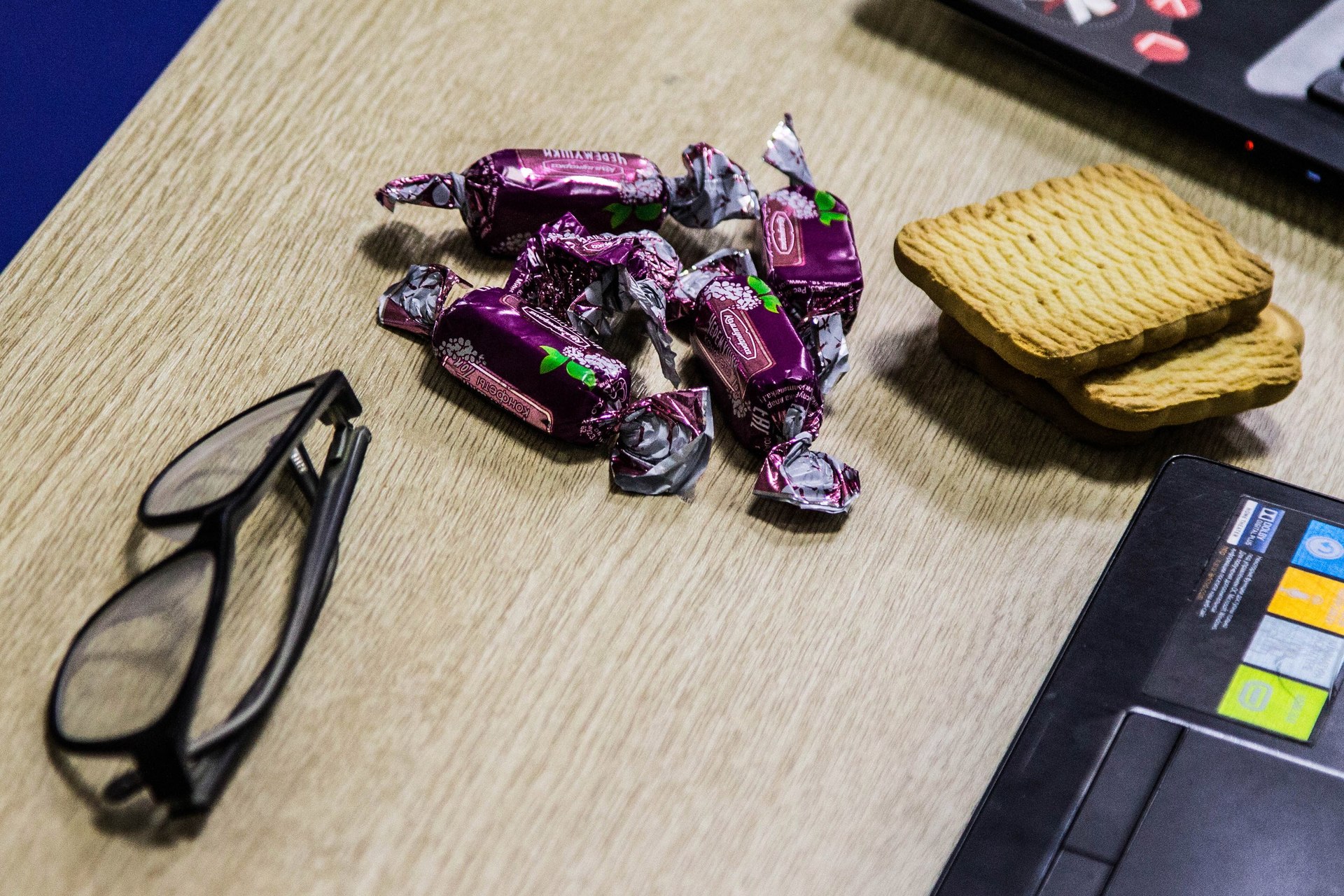
As well as constant intravenous injections of knowledge and life hacks from curators.
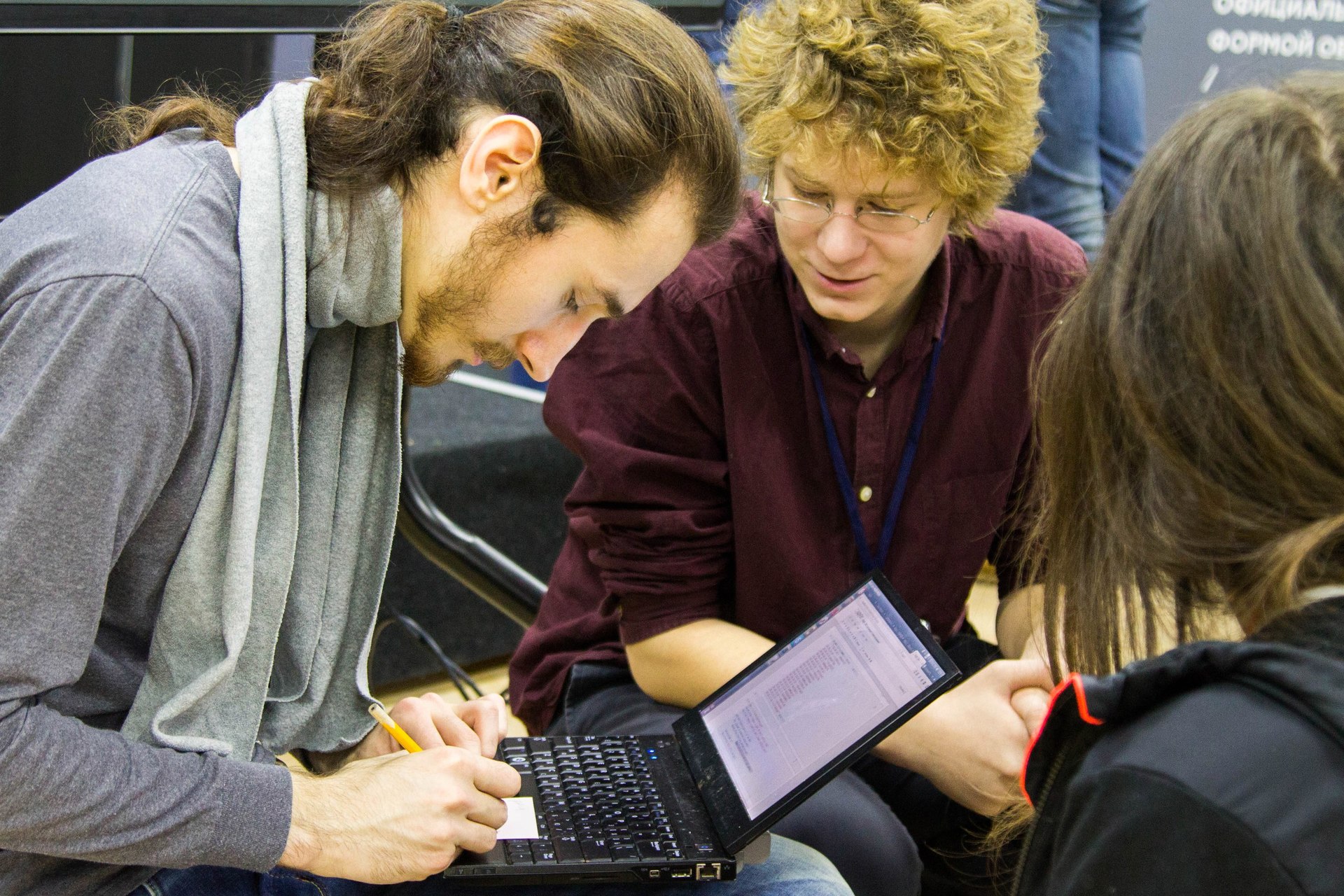
It is worth paying tribute to the curators, many have shown unprecedented stamina and patience.
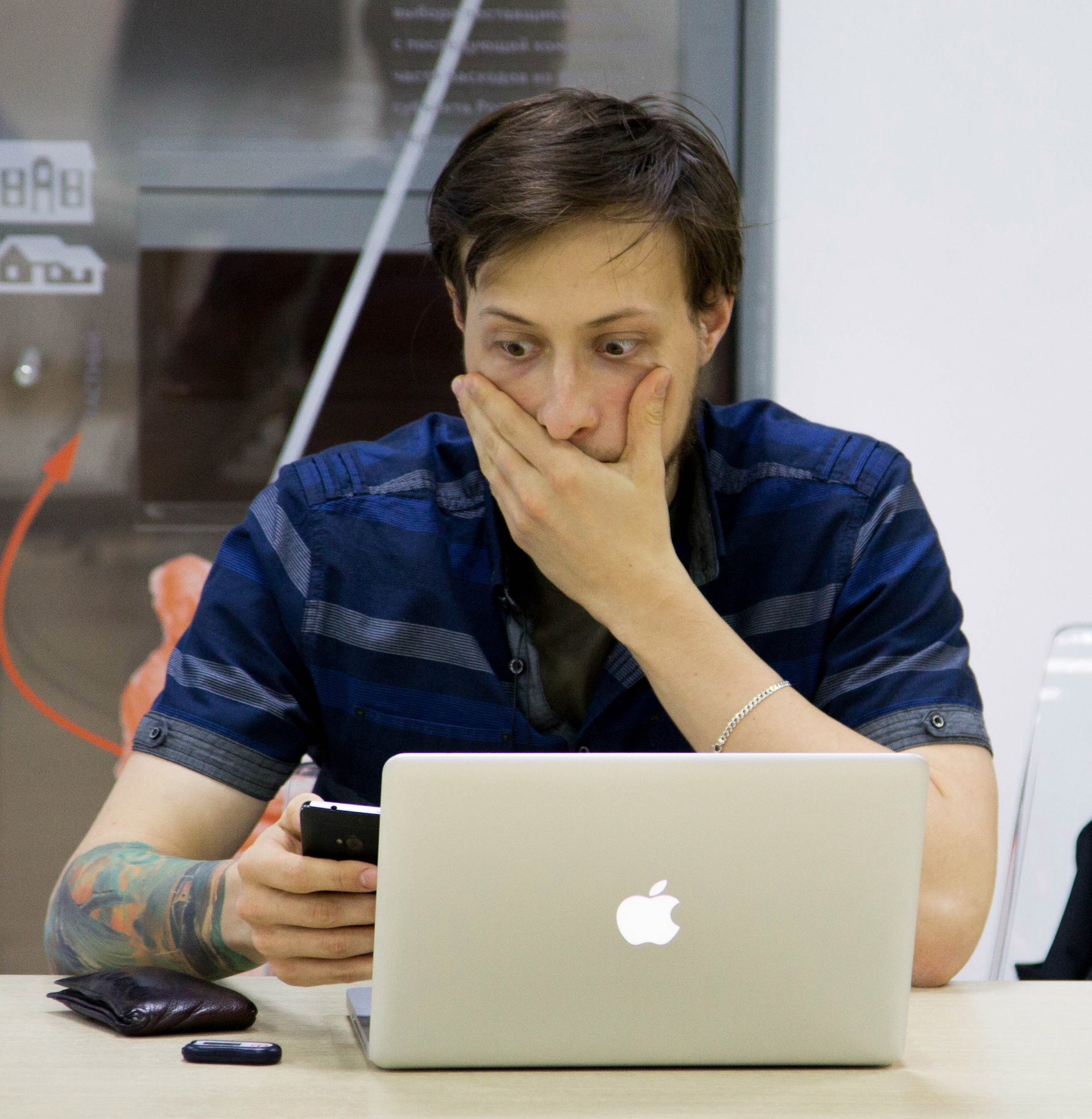
Naturally, the participants could not do without a healthy share of aggression and adrenaline.
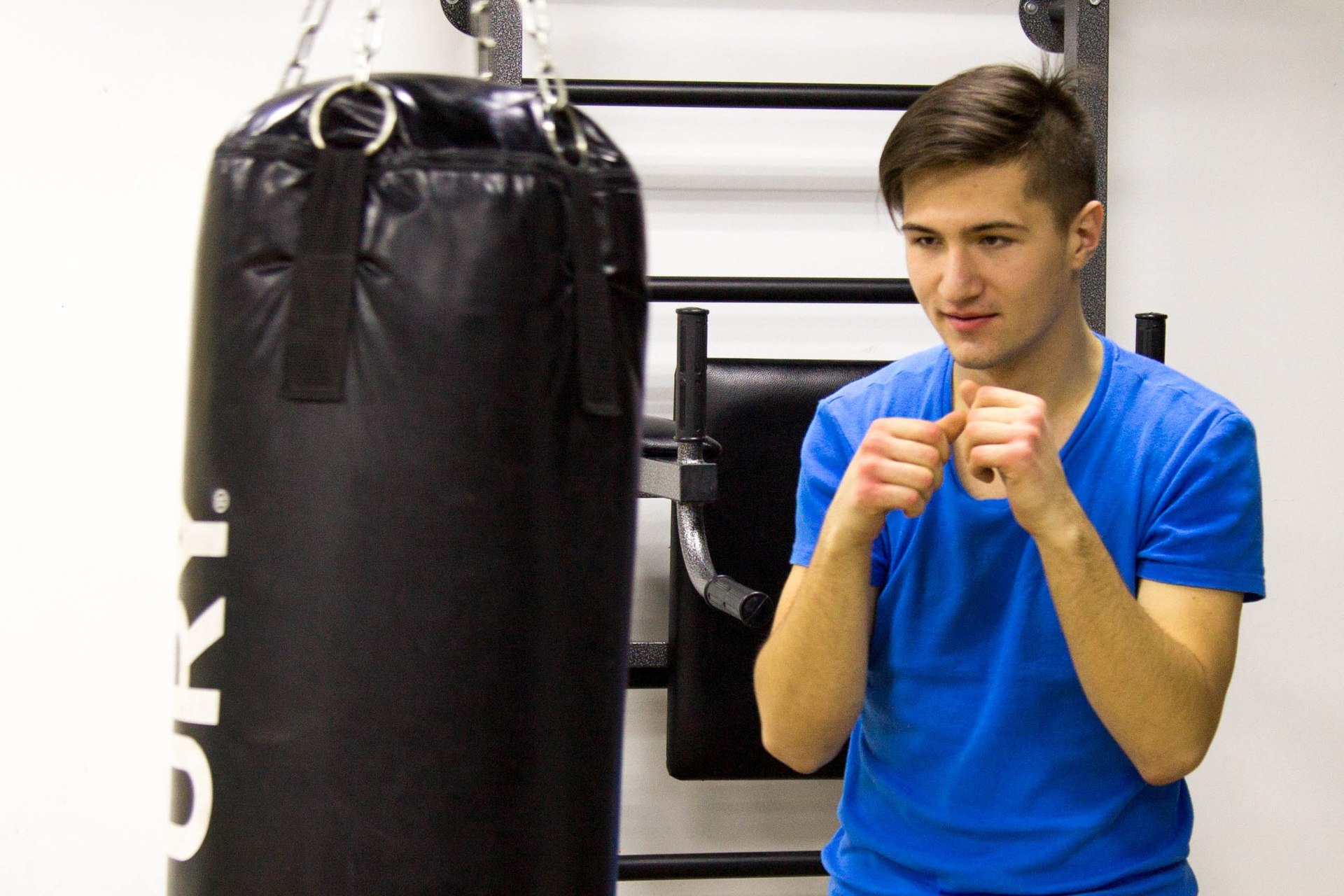

Deliveries of glucose to young datasainists occurred around the clock.

As well as constant intravenous injections of knowledge and life hacks from curators.

It is worth paying tribute to the curators, many have shown unprecedented stamina and patience.

Naturally, the participants could not do without a healthy share of aggression and adrenaline.

As is usually the case at hackathons, in the end it all ended with presentations of projects from teams that have survived to this solemn moment.
It is worth noting that this time the final decision was made not only on the basis of the performance, as it usually happens, the assessment for technical implementation from the curators was also taken into account. This added an entourage to the process, the guys frantically made demos, notebooks and raked up their shitty code.
As a result, the first place was shared by 2 teams that presented the following projects:
- The team of star schoolchildren from Votkinsk, Moscow and Arkhangelsk with the ZuckWorkBot chat botto select online courses on Coursera that meet the requirements of the selected Facebook vacancy. The guys pleased the jury with a fun presentation that everyone wants to work for FB and told how they can help us all.
You can test the bot, look for @ZuckWorkBot in Telegram.
- Lonely freshman with the HSE Faculty of Finance with the Q&A matching projectwhose main idea is to select the answer to the question posed by natural language. The whole system was trained on the dataset of questions from TheQuestion. Questions and answers are broken up into words and vectorized using Word2Vec, fall into a recurrent neural network, and then with the help of triplet loss are mapped into a high-dimensional vector space. When a new question is asked, the same transformation is applied to it, after which the L2-closest answer is searched. The results can be used to automate the support of software products, online courses, etc.
The second place was taken by the guys with the project Personnelaccording to salary assessment according to the description of the vacancy and skills required from the candidate. The Skill2Vec system is implemented by converting skills into vectors similar to Word2Vec and processing a natural language with recurrent neural networks. One of the fun examples: “programmer” - “analytical thinking” = “1C programmer”, demo here .
Third place - the team that introduced the StudentClass system for tracking student progress on the Skyeng online English language learning platform during voice communication with the teacher. Using neural networks, it is determined from the audio recording of the lesson who is speaking at a given moment in time and in what language.
Special prizes in nominations from QIWI were also awarded. The company not only provided its data and tasks for them, but also awarded 3 teams according to the results: AlexNet, Untitled1 and Amise.
Comments on tasks from QIWI:
“Last year, there were studies showing that students do not find work after graduation. We looked at a lot of students playing games. And where the games are, there is QIWI. We looked at all the data on payments, presented how they can be analyzed. The task was to examine the data and find in the payment history a certain set of signs indicating that the student had graduated from the university and he had income. For example, he began to pay for utilities or spend more. The participants liked the task, because it is very similar to the real complex of tasks that are solved by research companies cooperating with the largest European banks. They are also looking for events on the payment history - they discover a wedding, a soon birth of a child, a purchase of a car - and the bank offers the client the corresponding loans and other products.
The second task was to determine the sociodemographic characteristics of the user. The team that received the first prize learned with high accuracy to determine gender and age, and their solution can be truly applied in business.
Of course, the guys expected that the banks had a lot of data. But in fact, the payment history of the bank looks rather boring: the category of transaction, its amount and time. But from this boring list you can highlight a huge number of signs. And we wanted the guys to try to do this work on their own.
We would also like to note that at the hackathon the competition itself often faded into the background.
Although the teams were rivals, they helped each other a lot, shared pieces of code, tested. On adult hackathons this does not happen at all. Generation Z - born after 1995 - generally has enhanced team building skills, role assignment. And more abilities to achieve a common result. ”
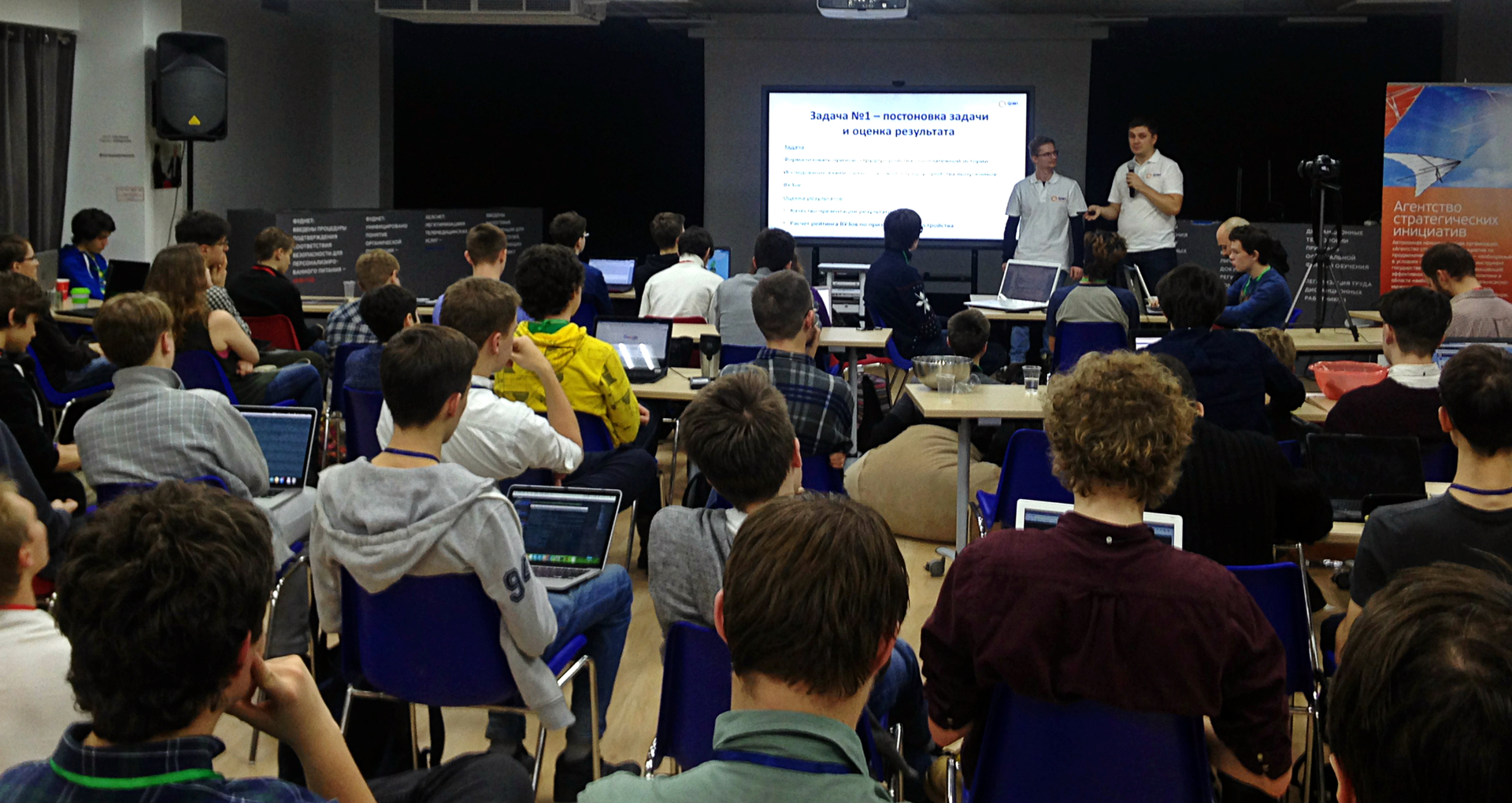
The MTS and Rybakov Foundation with money grants, Innopolis University with grants for free undergraduate studies, the HSE FKN with an invitation to the Bayesian School of Deep Learning also established their nominations . And the company Profilum, for example, invited the winning teams to dinner with investor Gor Nakhapetyan.
According to the results, the organizers selected 6 students who will go to the final of the NTI Olympiad, bypassing the qualifying stages. By the way, at the GoTo winter schoolthere will be a separate mini-group to prepare for the Olympiad in the direction of “Big Data and Machine Learning.”
The Russian venture company became the general partner of the hackathon, and the server.ru company became the technical partner.
Comments by Alexander Petrov, one of the jury members:
“I was pleasantly surprised by the level of projects at the hackathon - it corresponded to the most“ adult ”level. The guys used those methods and technologies that have recently appeared and are only just beginning to find application in real business, for example, technologies for training deep neural networks. I am sure that the knowledge and experience gained through the hackathon will be useful to everyone for future projects. We from E-contenta will definitely continue our cooperation with GoTo, since for us it’s not just charity: two guys from GoTo have already completed an internship with us, and their code works in combat mode on large projects. ”
Close photo
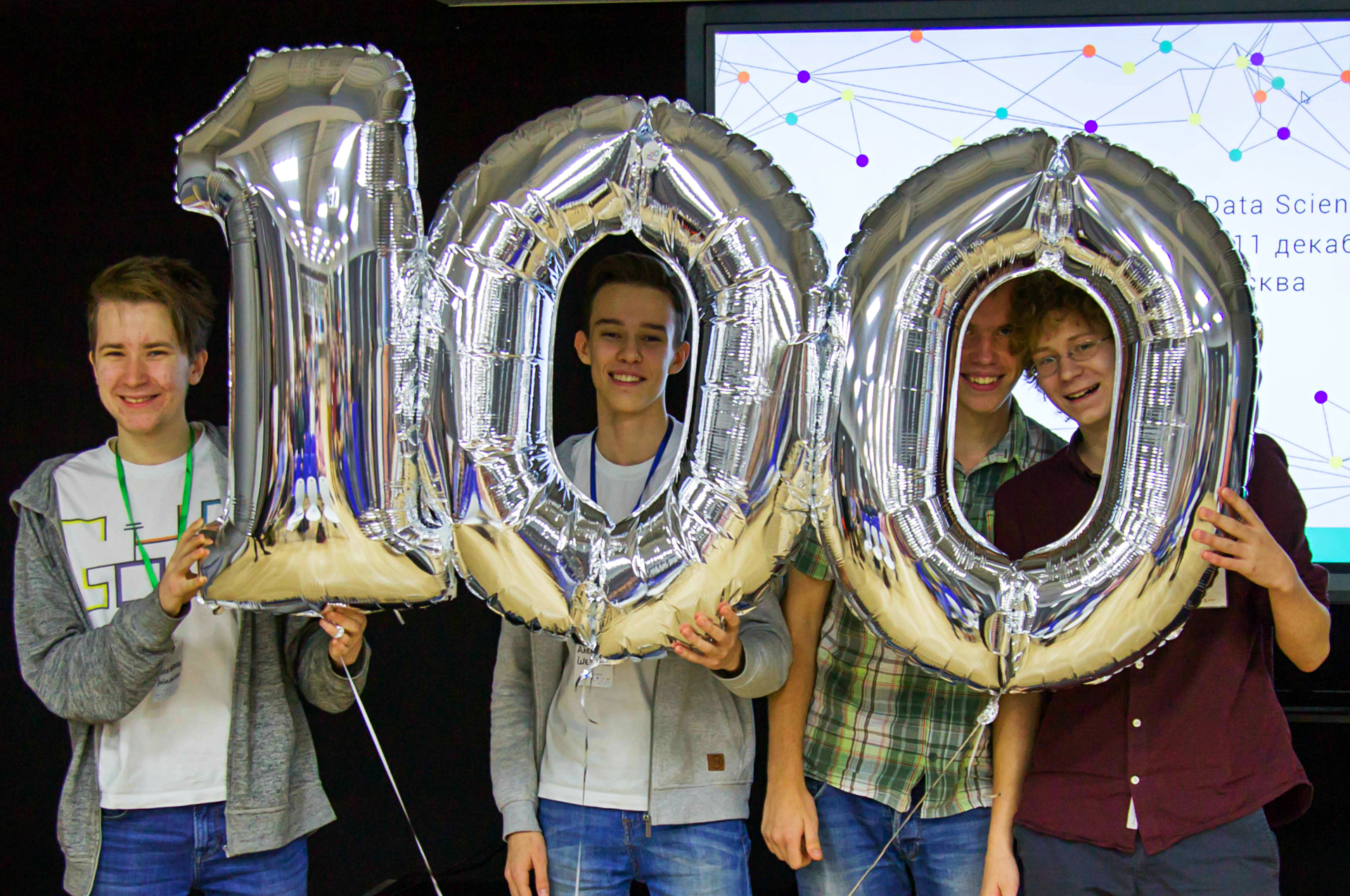
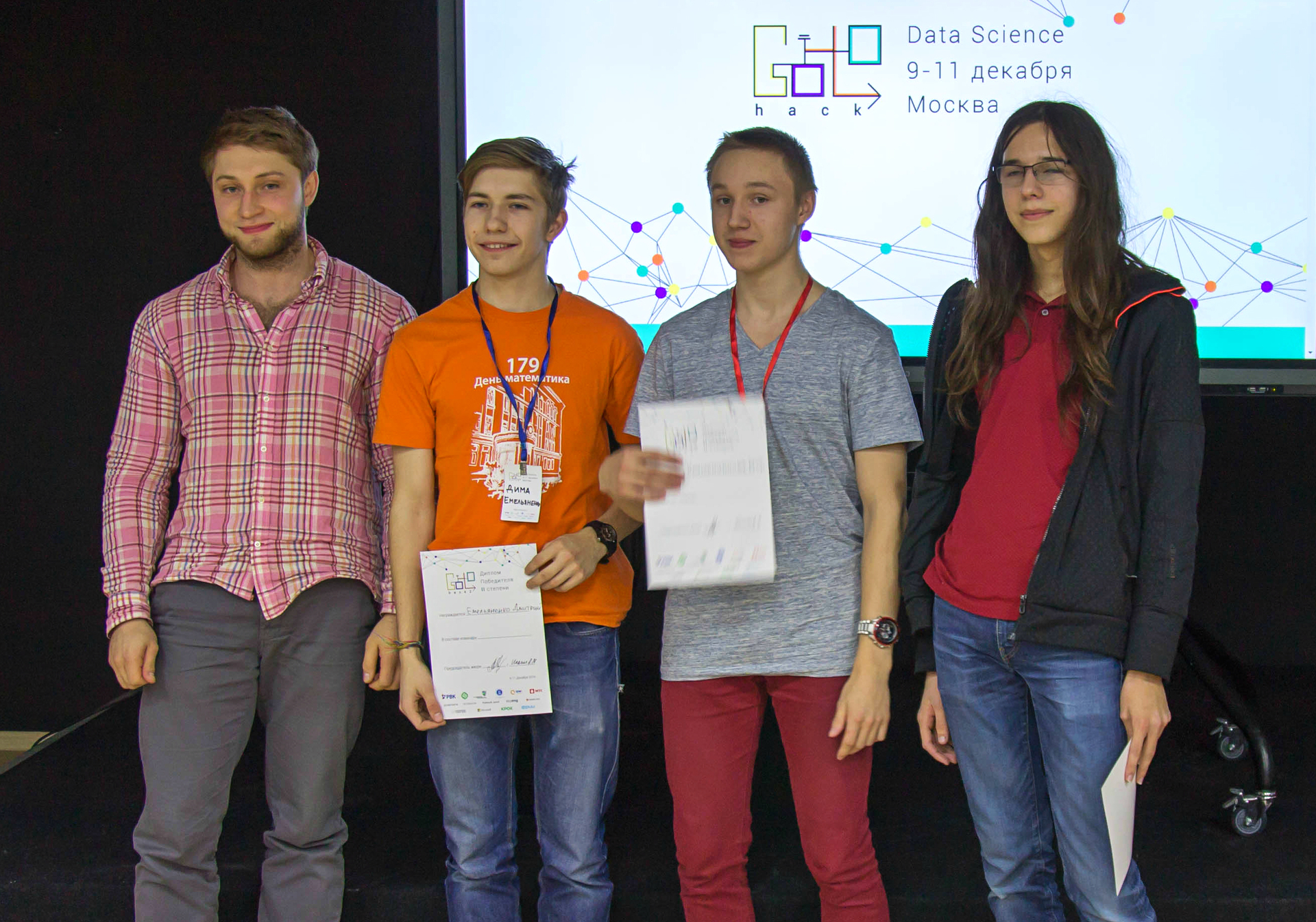
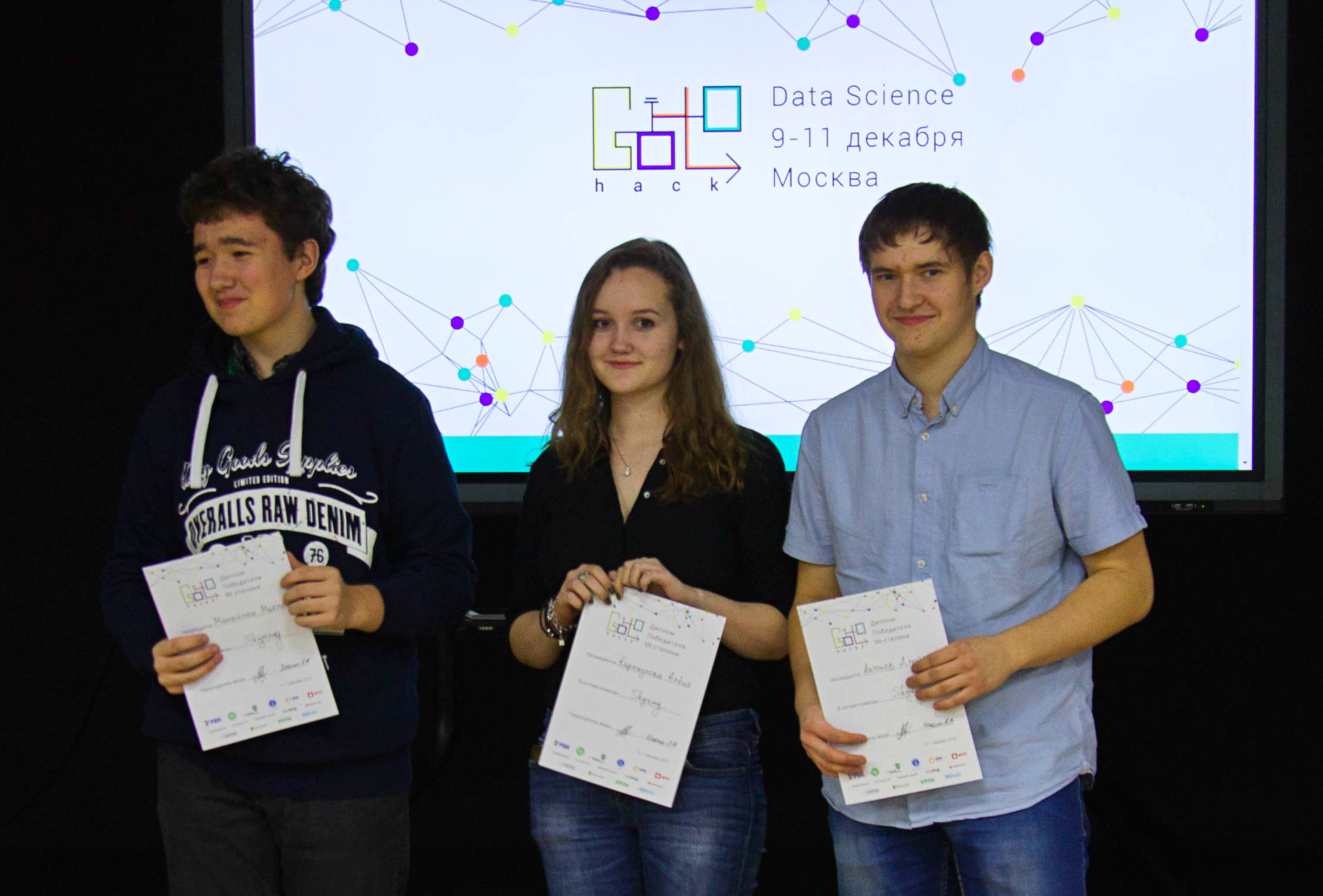




Find out more, as well as apply for participation in the next hackathon here .
